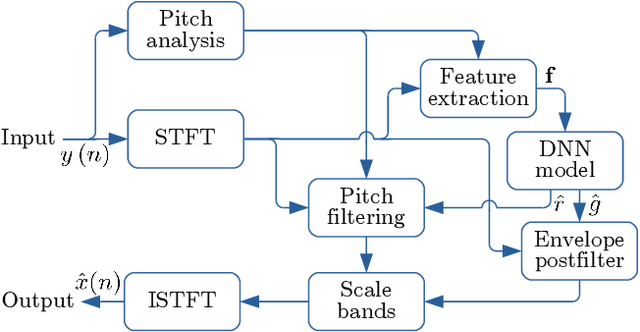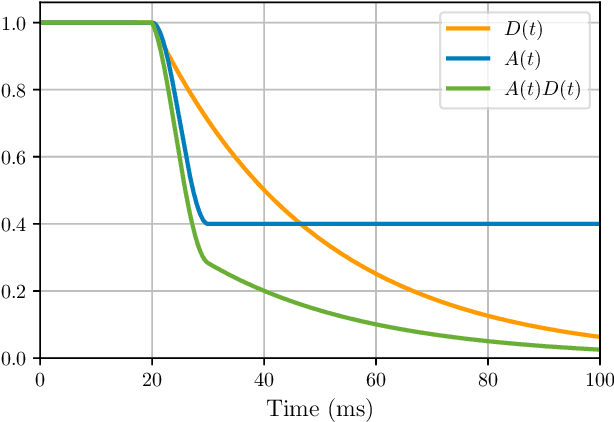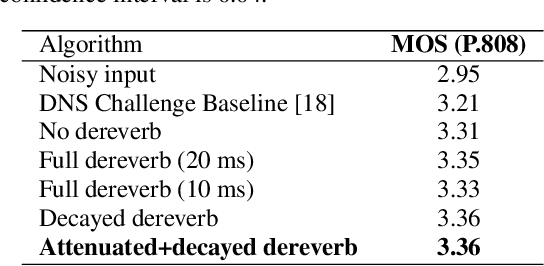To Dereverb Or Not to Dereverb? Perceptual Studies On Real-Time Dereverberation Targets
Paper and Code
Jun 16, 2022



In real life, room effect, also known as room reverberation, and the present background noise degrade the quality of speech. Recently, deep learning-based speech enhancement approaches have shown a lot of promise and surpassed traditional denoising and dereverberation methods. It is also well established that these state-of-the-art denoising algorithms significantly improve the quality of speech as perceived by human listeners. But the role of dereverberation on subjective (perceived) speech quality, and whether the additional artifacts introduced by dereverberation cause more harm than good are still unclear. In this paper, we attempt to answer these questions by evaluating a state of the art speech enhancement system in a comprehensive subjective evaluation study for different choices of dereverberation targets.
 Add to Chrome
Add to Chrome Add to Firefox
Add to Firefox Add to Edge
Add to Edge